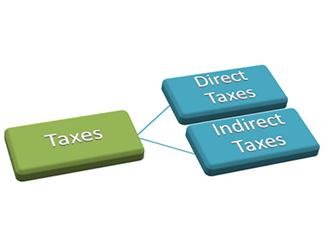Taxation System

Mauritius runs a self-assessment taxation system. Residents of Mauritius are taxed on worldwide income, except those whose foreign source income is not remitted to Mauritius. A resident company is charged tax in respect of its worldwide income, regardless of whether the foreign source income is remitted or not to Mauritius.
A non-resident is taxed on their Mauritius-source income . A Resident is defined in the Income Tax Act as an individual who is normally domiciled in Mauritius unless permanent domicile is outside Mauritius, or has lived in Mauritius for a period of 183 days or more in an income year or has lived in Mauritius for an aggregate period of 270 days in an income year and the 2 preceding income years. A company is resident in Mauritius if it is incorporated in Mauritius or has its central management and control in Mauritius.

The taxable income of a person comprises the gross income from different sources such as business, property and investments less allowable deductions. The taxable income of an individual includes salaries and benefits derived from employment.
No tax is levied on capital gains. However, profits made from sale of capital goods such as immovable properties on a regular basis may be held to be ordinary business income and hence taxable. Profits from the sale of securities and units are specifically exempt from tax.
 Capital
allowances are based on expenditure actually incurred, i.e. after
deducting any subsidies received or exchange gains on foreign loans
to purchase plant and machinery exchange losses on foreign loans are
added to the capital cost of the plant and machinery. Annual
allowances are allowed on capital expenditure relating to
acquisition of plant and machinery, construction or extension of
industrial premises including hotels, agricultural improvement on
agricultural land and scientific research.
Capital
allowances are based on expenditure actually incurred, i.e. after
deducting any subsidies received or exchange gains on foreign loans
to purchase plant and machinery exchange losses on foreign loans are
added to the capital cost of the plant and machinery. Annual
allowances are allowed on capital expenditure relating to
acquisition of plant and machinery, construction or extension of
industrial premises including hotels, agricultural improvement on
agricultural land and scientific research.
 The Personal
Income Tax Rate in Mauritius is reported by the Mauritius Revenue
Authority (MRA). The MRA holds a crucial role in the economy of
Mauritius and as such is the agency which is responsible in
collecting taxes in Mauritius. Personal Income Tax is a tax
collected from individuals and is imposed on different sources of
income like labour, pensions, interest and dividends. The benchmark
which is used refers to the Top Marginal Tax Rate for
individuals.
The Personal
Income Tax Rate in Mauritius is reported by the Mauritius Revenue
Authority (MRA). The MRA holds a crucial role in the economy of
Mauritius and as such is the agency which is responsible in
collecting taxes in Mauritius. Personal Income Tax is a tax
collected from individuals and is imposed on different sources of
income like labour, pensions, interest and dividends. The benchmark
which is used refers to the Top Marginal Tax Rate for
individuals.
 In
general, expenses are deductible if they are incurred exclusively in
the production of gross income and they are not of a capital or
private nature. Expenses are not deductible to the extent that they
are incurred in the production of exempt income.
In
general, expenses are deductible if they are incurred exclusively in
the production of gross income and they are not of a capital or
private nature. Expenses are not deductible to the extent that they
are incurred in the production of exempt income.
 Mauritius
does not have any avoidance legislation under which its residents
may be deemed to be taxable on profits accumulated by companies
located in low-tax jurisdictions if they hold interests of a
particular kind in the company concerned. However, there is
anti-avoidance provision under the Income Tax Act 1995 relating to:
excessive remuneration or share of profits; excessive management
expenses; rights over income related transactions to avoid tax
liability.
Mauritius
does not have any avoidance legislation under which its residents
may be deemed to be taxable on profits accumulated by companies
located in low-tax jurisdictions if they hold interests of a
particular kind in the company concerned. However, there is
anti-avoidance provision under the Income Tax Act 1995 relating to:
excessive remuneration or share of profits; excessive management
expenses; rights over income related transactions to avoid tax
liability.






